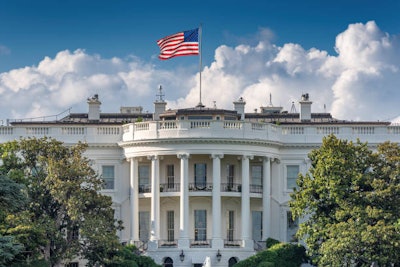
Dartmouth College President Dr. Sian Leah Beilock issued a brief but pointed statement affirming the institution's commitment to academic independence, declaring she would "always defend our fierce independence" and making clear the institution would never compromise its academic freedom and ability to govern itself.
At the University of Pennsylvania, faculty and community members launched a petition urging the administration to reject the compact, characterizing the White House overture as "a threat, not an invitation." The Penn petition warns that compliance would subject the university to ongoing review by the Department of Justice, with insufficient obedience resulting in loss of access to student loans, grant programs, federal contracts, research funding, visa approvals, and tax exemption.
The Association of American Colleges & Universities (AAC&U) issued a lengthy statement condemning the compact as fundamentally incompatible with constructive engagement. AAC&U characterized the compact as "an ultimatum: sign and receive 'multiple positive benefits,' including 'substantial and meaningful federal grants,' or retain the freedom to 'develop models and values other than those' of the administration, and 'forgo federal funding.'"
The organization emphasized that college and university presidents "cannot bargain with the essential freedom of colleges and universities to determine, on academic grounds, whom to admit and what is taught, how, and by whom," adding they "cannot trade academic freedom for federal funding—and should not be asked to do so."
Critics have identified several particularly problematic provisions in the compact:
The Penn petition argues the compact "redefines sex and gender according to rigid binaries incompatible with both science and Penn's values" and that forcing university members to accept these definitions would violate academic freedom.
Faculty members also object to demands about admissions requirements, such as mandating standardized tests and limiting international student enrollment, which they say "directly flout the shared governance rights of faculty."
Perhaps most troubling to critics is the compact's call for a "vibrant marketplace of ideas on campus," which the Penn petition describes as "a thinly-veiled attempt to restrict academic freedom to those who express government-approved views" given recent government actions to suppress pro-Palestinian advocacy.
The Penn petition draws on recent experience to warn that "a concession to threats will simply embolden the Trump administration to come back for more," noting that Penn had previously been the first institution to make a closed-door deal with the administration.
Rather than capitulate, the petition suggests universities could "temporarily raise the rate of spending on its endowment, as it has done before in times of crisis, while collaborating with other institutions to sue for the restoration of unconstitutionally withheld funds."
AAC&U framed the stakes in sweeping terms, noting that "the American system of higher education is the envy of the world, renowned for its cutting-edge research, culture of innovation, and commitment to academic freedom," and warning that the compact would make institutions "subject not to the law and the principles that have served us so well for centuries, but to the changing priorities of successive administrations."
American Council on Education (ACE) President Dr. Ted Mitchell has emerged as one of the most vocal critics of the compact, calling it "yet another instance of the administration weaponizing federal funding to achieve its ideological and political aims."
In an interview with The New York Times, Mitchell described the document as "a naked exercise of power, lacking internal coherence." He warned that if institutions agreed to the compact, it would set "a horrible precedent to cede power to the federal government."
As the October 20 feedback deadline approaches, it appears increasingly unlikely that any of the nine invited institutions will sign the compact. The question now is whether the administration will follow through on hints that it plans to extend the compact to all institutions of higher education—and how the sector will respond if it does.















